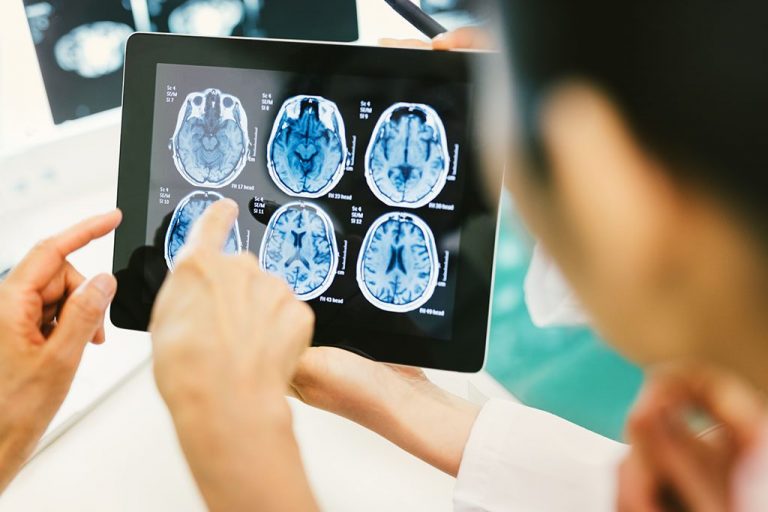Understanding "Talk and Die Syndrome": A Perspective from A St Pete Personal Injury Lawyer
 Michael Babboni
Personal Injury
As an experienced personal injury lawyer serving Saint Petersburg Florida for over 30 years, I've encountered an array of injury cases, some of which involve a frightening medical phenomenon known as "Talk and Die Syndrome". This syndrome can significantly impact the outcomes of personal injury cases, especially those involving traumatic brain injuries (TBIs). Today, I'm here to shed light on this issue and discuss its implications on personal injury law.
Michael Babboni
Personal Injury
As an experienced personal injury lawyer serving Saint Petersburg Florida for over 30 years, I've encountered an array of injury cases, some of which involve a frightening medical phenomenon known as "Talk and Die Syndrome". This syndrome can significantly impact the outcomes of personal injury cases, especially those involving traumatic brain injuries (TBIs). Today, I'm here to shed light on this issue and discuss its implications on personal injury law."Talk and Die Syndrome", medically referred to as a lucid interval, occurs following a blow to the head, resulting in an epidural hematoma. This is a type of bleed that occurs between the skull and the outermost layer of the brain. What's striking about this condition is that the injured person may initially seem perfectly fine, remaining conscious, alert, and capable of normal conversation. However, this period of lucidity is tragically deceptive; internally, the hematoma gradually expands, leading to increased pressure within the skull, ultimately causing brain herniation and death.
The phenomenon of "Talk and Die Syndrome" brings complexity to personal injury cases. It can be deceptive, causing the gravity of the victim's injuries to be overlooked initially. This leads to delays in seeking critical medical attention and potential underestimation of damages. The person responsible for the injury might argue that the victim was unharmed initially, making it challenging for the victim or their family to receive the fair compensation they deserve.
The lesson to be drawn from this syndrome underscores the importance of immediate medical attention following any head injury, no matter how minor it may appear. A thorough medical examination can identify and treat hidden internal injuries, potentially averting a catastrophic outcome.
As an attorney helping people suffering from brain injuries, I play a critical role in cases involving "Talk and Die Syndrome". It's my responsibility to establish the link between the initial injury and the tragic subsequent death, demonstrating that the seemingly innocuous head injury was, in fact, the direct cause of the fatal outcome. These cases often involve extensive medical evidence and expert testimonies, requiring a deep understanding of both medical and legal aspects.
Proper documentation is essential in any personal injury case, and this holds especially true for those involving "Talk and Die Syndrome". Eyewitness accounts of the accident, comprehensive medical reports, and expert testimonies on the nature and impact of the injury all contribute to building a strong case and ensuring that the victim or their family receives the due compensation.
As a personal injury lawyer, understanding "Talk and Die Syndrome" is crucial for effectively representing clients who have suffered from a TBI. Being able to explain this complex medical issue in understandable terms to a jury can significantly impact the outcome of the case. At the end of the day, my aim is to advocate for my clients' rights and ensure they receive the justice they rightfully deserve.
This syndrome poses a higher risk for children under 14 due to their higher likelihood of sustaining head injuries, while adults over 75 are more likely to succumb to the syndrome's fatal consequences. The tragic case of Tony award-winning actress Natasha Richardson in 2009 brought worldwide attention to the potential dangers of this syndrome. Despite appearing fine after a seemingly minor skiing accident, Richardson sadly passed away due to untreated internal head injuries, a classic example of Talk and Die Syndrome.
The biggest lesson we can take from such incidents is the absolute necessity of seeking immediate medical attention following a head injury, regardless of how trivial it may seem. Although initial symptoms may be absent or minimal, untreated head injuries can lead to irreversible brain damage or even death. However, with swift medical intervention, the fatal outcome of Talk and Die Syndrome can be prevented.
As a personal injury lawyer in Saint Petersburg, Florida, my goal is to ensure you receive the justice and compensation you deserve following an accident. If you or a loved one have been in a car accident or sustained a traumatic brain injury due to someone else's negligence, don't carry the burden of medical expenses on your own.
